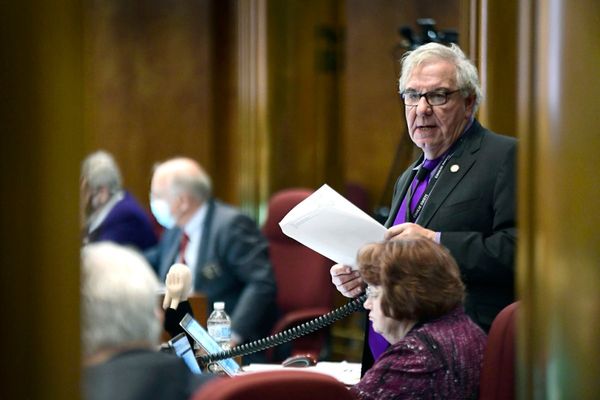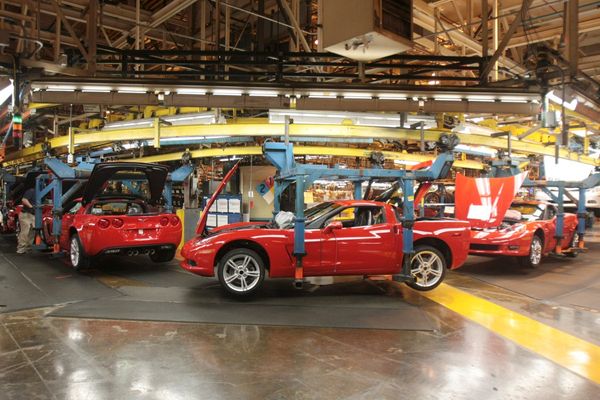What's your magic number? We're talking about how much money you need to be happy.
Is it reaching the $1 million round-number milestone? Or are you shooting for the $1.2 million "price tag" that Americans say can buy happiness, according to new research from Empower? Or would you be happier with the $1.8 million that 401(k) savers responding to a Charles Schwab survey say they need to retire?
And can any amount of money buy happiness anyway?
Will Money Make You Happy?
"How much money will make me happy?" is an age-old question that gets asked a lot. That's because for most people, money and happiness are inextricably linked.
Nearly six in 10 Americans (59%) say, yes, money can buy happiness, according to Empower, a financial planning, investing and advice firm. An account balance of $1.2 million seems to boost people's happiness quotient, Empower's research found.
"For many people, financial happiness starts with clarity," said Courtney Burrell, a financial advisor at Empower. "Try answering this question: What does financial happiness look like for you?"
What's Eating Away Your Money?
The research from Empower comes at a time when many people's finances are being undermined. Inflation, higher borrowing costs and rising home prices have pushed housing affordability to record lows.
No doubt, not having money problems can lift one's spirits, minimize financial stress and boost the odds of not having to delay retirement. Having more money rather than less money gives you more options. And it can certainly make your life more comfortable.
Most people associate the so-called "return on happiness" with things like on-time bill payment (67%), being debt-free (65%), affording everyday luxuries without worry (54%) and owning a home (45%), the Empower research found.
Finding Financial Freedom
For most people (53%), financial contentment is as simple as being able to afford experiences with people they cherish. That might be a family trip to Paris or going to see a sporting event, according to Empower research. And for a lot of people, happiness is as simple as having the flexibility to spend $7 on their daily coffee.
Finding the link between money and happiness has been the subject of research for many years. And the findings are eye-opening because the findings often were contradictory.
Back in 2010, for example, research by Princeton professors Daniel Kahneman and Angus Deaton found that emotional well-being and day-to-day happiness rise as annual income increases. But they also found that happiness leveled off and plateaued at $75,000. That's roughly $105,000 in today's dollars.
But a similar study in 2021 by Matthew Killingsworth, a professor at the University of Pennsylvania, found that happiness continued to rise above incomes of $75,000. That suggested that higher incomes still have the potential to improve people's day-to-day well-being.
However, a joint research project by Kahneman and Killingsworth in 2023 found that, on average, higher incomes result in greater happiness for most people. But there's a big exception. People who are well-off but unhappy only show more happiness up to a certain income threshold and then plateau. "If you're rich and miserable, more money won't help," Killingsworth wrote in the paper.
Is $284,167 Enough?
When it comes to work pay and happiness, Americans say they need $284,167 annually to be happy. That's way more than the median weekly salary of $58,316 for full-time workers who earned $1,118 weekly in this year's third quarter, according to the Bureau of Labor Statistics
Ironically, while a LendingTree survey in 2022 found that 33% of Americans said "money makes them happier than love" — more than four in 10 respondents (43%) said they "have gone into debt trying to buy happiness."
The key to using money to buy happiness is to avoid turning short-term happiness into longer-term financial troubles, says Matt Schulz, chief credit analyst at LendingTree.
"It is really about having a financial plan and being thoughtful and just doing things in moderation," said Schulz. "You don't want to end up ruining a really good experience by finding yourself in debt for six months to a year afterwards."
What To Spend On To Be Happy
Still, Schulz says it's OK to spend money on things that make you happy. He says some debt is good debt — if it's managed properly.
And spending on experiences you share with others can lead to lifelong memories you can't put a price tag on.
"Experiences tend to stick with us longer than the buzz of buying something new," said Schulz. "So, if you've dreamed of going to Paris or taking your family to Hawaii, and you're going to remember that for the rest of your life and create nice memories, I think that can be good debt, assuming you don't go too crazy."
Similarly, paying for something over time isn't the end of the world — if it makes you happy.
"If you're a Taylor Swift fan or a Beyonce fan and you need to take a couple of months to pay off your concert ticket or the travel to see your musical idol, I think that's OK too," Schulz said. "You just can't do it all the time."
How To Get To A State Of Money Happiness
What's the way to get to your happy financial state? First, map out a financial plan. Having a plan and a financial advisor also boosts well-being. Nearly three of four Americans (73%) agree that a solid financial plan would bring them happiness, according to Empower's Burrell, commenting on another research finding.
"It's not all about how much you make and have saved, but what you do with what you have," said Burrell. "Working with a financial professional is like having a seasoned guide helping you navigate the peaks and valleys of your money journey, from budgeting to investing."
Next, tie financial goals with your values. "Align your financial goals with what truly matters to you," said Burrell. "Craft a budget that reflects your values, allocating resources to experiences and investments that bring you genuine joy and fulfillment. By weaving your values into your financial strategy, you can build wealth in a way that resonates with your lifestyle, fostering a healthier, happier, more sustainable path to financial happiness."
Lastly, stick to your budget. "Budgeting, or what I call empowered spending, cultivates financial clarity and reduces stress by creating a structured plan," said Burrell. "Getting clear on your needs, wants and goals will help you feel more empowered in your financial spending habits and decisions, versus feeling like you have to give something up."







